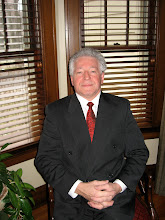With Syrian airstrikes, Putin casts Russia as everything US is not
Trying to woo regional allies, Russian President Vladimir Putin has cast Russia's intervention in Syria as decisive and practical.
Washington — That Vladimir Putin is out to save Syrian President Bashar al-Assad seems to be of little doubt.
But increasingly, it appears the Russian leader is intent on making a broader point through his muscular military intervention in the Syrian conflict, and it has to do at least in part with the United States.
In short, he wants to make Russia appear decisive by comparison, giving regional governments a choice in whom they want as a partner, several analysts suggest.
“To America’s partners in the region, starting with Egypt, who are questioning the depth of the US commitment, he is making a stark comparison: Russian reliability vs. American indecision,” says Nikolas Gvosdev, a professor of national security studies and expert in US-Russia relations at the Naval War College in Newport, R.I.
“Putin is saying that Washington is no longer the only go-to capital for getting things done in the world,” Dr. Gvosdev adds.
Putin has made a particular point of drawing the world’s attention to the failures of American-style regime change – whether it was George W. Bush in Iraq or a “lead from behind” Barack Obama in Libya.
Both he and his foreign minister, Sergei Lavrov, said at the United Nations General Assembly last month that regime change imposed by outside forces leads to nothing but disorder and greater violence, but Russia is intervening in Syria to reestablish order and security.
Putin “spends his time building up himself and his country by pointing out the flaws of the United States,” says John Hulsman, president of John C. Hulsman Enterprises, a global political risk consulting firm in Rothenburg, Germany. “Instead of seeing Putin as a Bond villain the way the US press seems to, we should see him for what he is, a nationalist whose focus is reestablishing and extending Russia’s national honor.”
In that way Putin is a “Gaullist,” Mr. Hulsman says, noting that Charles de Gaulle managed to keep France a power punching above its weight after World War II in part by positioning himself as a critic of America’s global foibles and arrogance.
“Let’s remember that Texas has a higher GDP than Russia,” Hulsman says. “Russia is nowhere near a great power, but by intervening, [Putin] is saying Russia must be reckoned with. And by espousing this idea, appealing to a growing number of listeners, that the region would be better off if unsavory but authoritative leaders were left in place, he is winning for himself a ticket to the big show,” he adds.
Both the US and Russia say they want to weaken and ultimately destroy the self-proclaimed Islamic State, which both powers consider to be a rising terrorist group.
But while the US is supporting moderate rebels who oppose both Islamic State (IS) and Mr. Assad, Russia has been largely leaving IS militants unscathed while targeting anti-Assad rebel forces that it considers to be terrorists.
In the view of some US analysts, Putin’s aim in Syria is to take out the moderate rebels threatening Assad, in effect leaving only two forces –Assad and IS. In that scenario, the US and its Western partners would have little choice but to accept Assad’s survival.
But the Naval War College’s Gvosdev says Putin’s goals might be less grand.
“Even if Putin does only a partial save and manages to keep Assad on his feet in the 20 percent of Syria he now has, that’s probably enough,” Gvosdev says. “He can still say ‘I can get something for my guys, and I never claimed to do more.’”
That, too, will be in pointed contrast to what the US has promised – and not delivered, he adds. The US has “painted itself into a corner” where “anything short of ‘Assad must go’ will be a defeat.”
Much as in Ukraine, Putin’s aims in Syria are limited, and as a result victory can be claimed at a much lower bar, Gvosdev adds.
“Putin has no thought of restoring and transforming Syria – instead a frozen conflict where Assad survives and some manner or order is reestablished at least in part of the country will probably be enough,” he says. “Those larger goals are the ones he sees the US repeatedly going for and then failing at.”
---{-=@
HICKOK


No comments:
Post a Comment